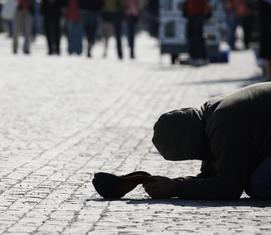The views expressed in our content reflect individual perspectives and do not represent the authoritative views of the Baha'i Faith.
Imagine that you were born a few centuries in the past, and consider, for a moment, what it may have been like for the Indigenous peoples of that age who sought wisdom to live by.
Without technology or schools or modern travel or books, they seemingly observed a “pattern set up in the heavens” and wove this understanding of a greater harmony and wholeness around them into the heart of the stories they told.
RELATED: What Does It Mean to Have a World-Embracing Vision?
All existence was intended to remain forever whole. But as we know from stories like the Garden of Eden and Pandora’s Box, not only did asserting our own individual will over a greater will change things forever, but our fall from wholeness also created two types of narratives, those that divide and those that unite. The world has endured millennia of stories focusing on duality and maintaining separation.
We need stories that unite, as this storyteller’s history of the world makes clear:
There was a time when people gathered around campfires, the center of community life, to share stories that embodied the values and principles they lived by. These stories held the community together and gave them a shared purpose. They were unitive narratives, essential to their individual and collective well-being.
Then there came a time when communities expanded, spread out, became more diverse, and experienced conflict and disorder. Out of this discord emerged divisive narratives that maintained separation.
Today, as we approach a consciousness of global integration, a new story of our wholeness is needed to frame this interconnectedness. Humanity has arrived at a time when it is necessary for our own survival to come together through unitive narratives, to share our own story of living into wholeness.
Through this evolution of our human stories over the millennia, we see that nothing may be more vital right now than a healing vision that guides us back to our original, innate wholeness. What is needed now are narratives that support and lead to unity expressing its most complete diversity – narratives expressing wholeness itself.
This transformation of heart and worldview, through which we tell our most cherished stories, is already under way. As Baha’u’llah wrote a century and three quarters ago:
The day of service is now come … We have … breathed a new life into every human frame, and instilled into every word a fresh potency … Let your thoughts be fixed upon that which will rehabilitate the fortunes of mankind … Let your vision be world embracing, rather than confined to your own self … the doors of love and unity have been unlocked and flung open … the brightness of the fire of your love will no doubt fuse and unify the contending peoples and kindreds of the earth …
Stories that unify convey an inherent wholeness across all life forms, the natural world, and the entire creation. This understanding leads to the realization of a unitive consciousness, the goal of an evolving humanity.
Unitive narratives invite us to embrace the wisdom of the complementarity, balance, and wholeness of seemingly opposing forces. Binaries like feminine and masculine become more valued when they are viewed as human attributes rather than as a reason to divide us along gender lines.
Unitive narratives are needed now more than ever to lead us through a process of shifting the focus from individual well-being to collective well-being. In our time, the part no longer takes precedence over the whole. Both are completely interdependent. Exclusive emphasis upon any one part endangers the whole.
As we live our lives consciously and deliberately, universal motifs and archetypes making up a timeless pattern emerge, through which we discover not only who we are but also why we are deeply connected to all others.
RELATED: Love: Emanating from the Divine to Purify Our Hearts
It is time to come together again through unitive narratives, to share our stories of living into wholeness. This will be the natural outcome of a process of evolution that has been leading us to the realization of our interdependency as one human community with one common heritage and destiny.
The Baha’i teachings make it clear why we need more unitive narratives. As Abdu’l-Baha said in a speech he gave at New York’s Columbia University in 1912:
The most important principle of divine philosophy is the oneness of the world of humanity, the unity of mankind, the bond conjoining East and West, the tie of love which blends human hearts. Therefore, it is our duty to put forth our greatest efforts and summon all our energies in order that the bonds of unity and accord may be established among mankind.
Adapted from A New Story of Wholeness: An Experiential Guide for Connecting the Human Family by Robert Atkinson.

















Comments
Sign in or create an account
Continue with Facebookor